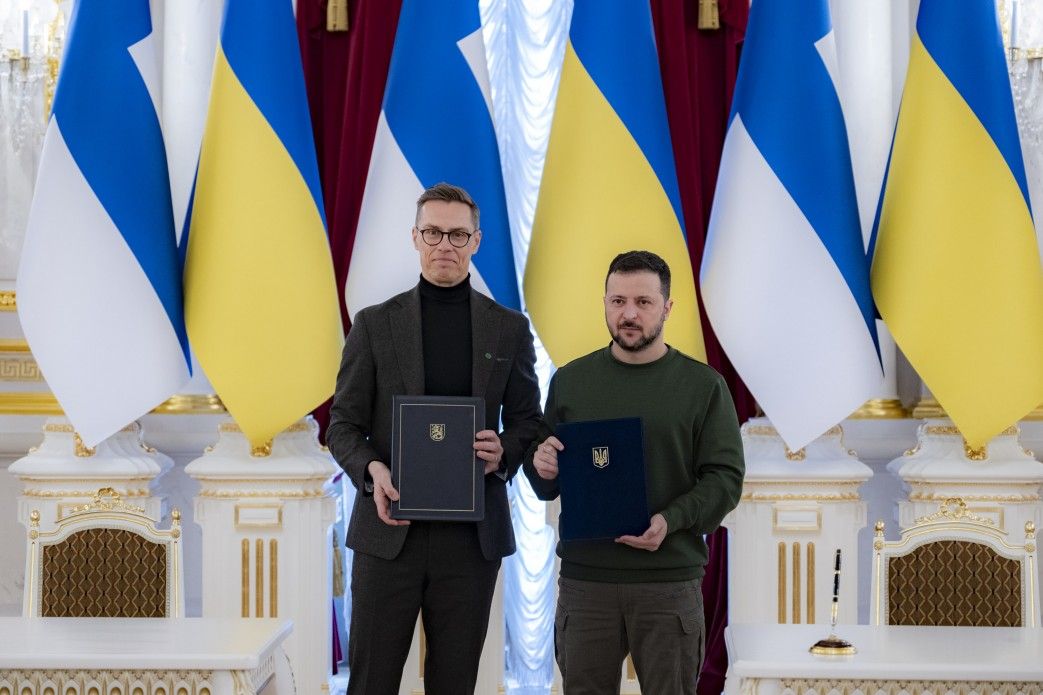Estonian president: Ukraine's right to attack military targets in Russia 'entirely legitimate'

During a meeting with Ukrainian Prime Minister Denys Shmyhal in Tallinn on April 3, Estonian President Alar Karis reaffirmed support for Ukraine's attacks on military targets in Russia, stating that it was "perfectly legitimate for the Ukrainian forces to destroy infrastructure critical to the Russian army."
"I consider it entirely legitimate for Ukraine to attack military and other targets within Russia that support the war in order to slow the progress of the Russian war machine," Karis said, according to a press release issued by the President's Office.
"Ukraine is at war. Russia is not limiting itself in attacking the country."
Karis' remarks come as the United States has reportedly warned Ukraine to limit attacks on Russian energy infrastructure citing potential repercussions on global oil prices, as well as further Russian retaliation.
In response to the U.S. warnings, Ukrainian President Volodymyr Zelensky said in an interview with the Washington Post on March 30 that Ukraine has the right to use its own weapons with retaliatory strikes on Russian oil refineries, despite concerns from United States.
"We used our drones. Nobody can say to us you can’t," Zelensky told the Washington Post, emphasizing that Washington could not limit Ukraine's use of its own weapons.
Ukraine continues to carry out attacks on Russian oil refineries. A recent attack on March 17 successfully targeted 12 Russian oil refineries amounting to about 12% of Russia's oil-processing capacity, according to Bloomberg.
The strikes serve as retaliation for Russian attacks on Ukrainian critical infrastructure, and align with Ukraine's military objectives.
During Shmyhal's visit to Estonia, Karis also reaffirmed the country's commitment to supporting Ukraine, adding that the European Union and NATO allies are economically and militarily superior to Russia, emphasizing that it is up to the willingness of Western allies to help Ukraine win the war.
"Western nations can fill their stores with weapons and artillery and supplies, but if the Ukrainians lack all of these things on the battlefront, those stocks are meaningless," said Karis.
"Now it is a matter of committing ourselves to the objective and finding the resources that are needed as quickly as possible so that we can actually deliver on what we have promised."
A small Baltic nation of 1.3 million people, Estonia has thus far contributed the most bilateral aid to Ukraine as a share of its GDP, contributing 3.6% to support Ukraine, according to CNN.
Urging allies to provide more support for Ukraine, Estonia's head of state emphasized the need to further contribute to support Ukraine.
"We must give the Ukrainians what they need,” Karis said.











